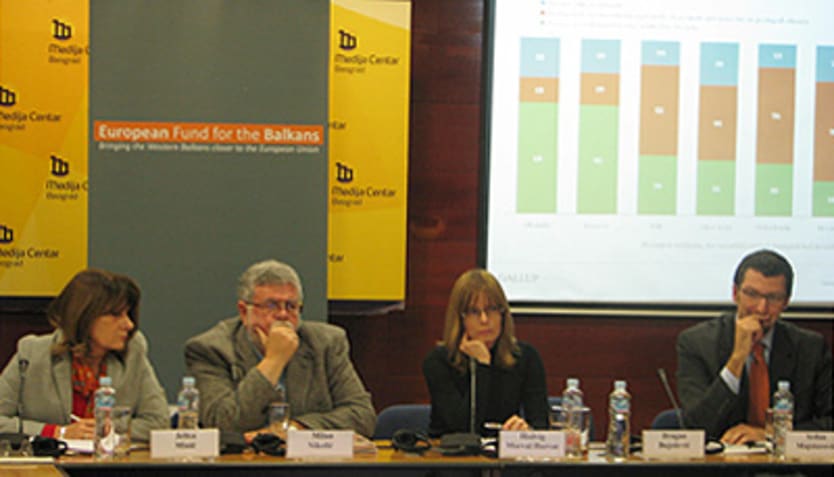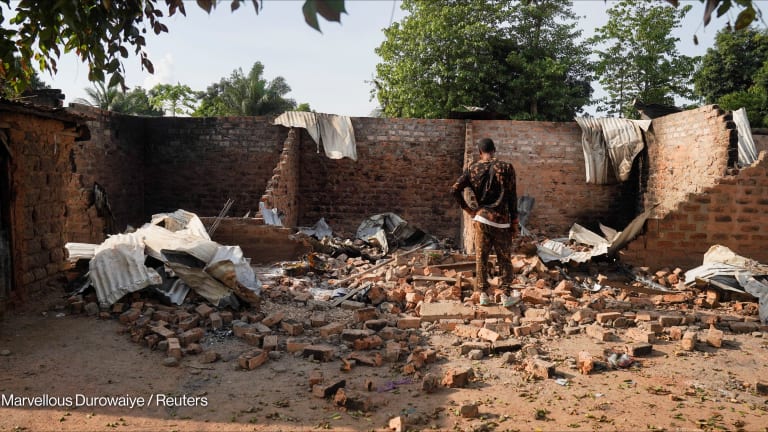
There is a need to change the image of the Balkans. This argument reflects the purpose of the European Fund for the Balkans, according to the foundation’s director, Hedvig Morvai-Horvat.
“The region still faces many challenges,” Morvai-Horvat said. But, “we have to realize that there are many opportunities as well.”
Based in the Serbian capital Belgrade, EFB is a new initiative created jointly by four large European nonprofits: the Robert Bosch Foundation, of Berlin; King Baudouin Foundation, of Brussels; Compagnia di San Paolo Foundation, of Turin; and Erste Foundation, of Vienna.
The fact that these four European foundations came together to create EFB “clearly shows the power of collaboration based on a joint vision and mutual understanding,” Morvai-Horvat said. The new fund has only been operational since early 2008.
EFB is a follow-up to the International Commission on the Balkans, an initiative that, between 2004 and 2006, gathered senior officials and experts to provide recommendations on how to integrate the Balkans in mainstream Europe. Some of the donors behind the commission also backed EFB.
According to Morvai-Horvat, the fund mainly aims to support the development of functioning state administrations and constituency-building. It works to implement the commission’s recommendations through grant-making and running its own projects.
“However, there is also a third aspect, which we consider very important,” Morvai-Horvat said. “The fund is designed to engage not only European donors already active in the Balkans, but also public and private donors who have not worked in the region until now, or who wish to leverage their own funding and increase its impact.”
Morvai-Horvat is proud that last year, EFB received financial contributions from the foreign affairs ministry of the Czech Republic, which recently took over the rotating European Union presidency from France.
“We consider this support as a sign of recognition of the EFB and its activities aimed at bringing the Western Balkans closer to the E.U.,” she said. “We should keep in mind that the Czech Republic’s presidency to the Council of the European Union considers the relations with the countries of the region as one of its main priorities.”
Only a year old, EFB is still in its infancy. It was only recently fully staffed and, in the words of its director, is still developing its program.
“We are still testing the ground,” Morvai-Horvat said.
EFB provides different types of grants, and sizes vary depending on the projects they support. It issues a regular call for proposals and does not entertain unsolicited applications.
EFB initiatives include “Think and Link,” a regional policy program for think tanks and policy institutes that are eager to promote “inclusive and evidence-based policymaking” through individual and collaborative research projects. The program has a different focus each year; last year, it was environmental policy.
“We are happy to have contributed to raising the awareness about his issue and we expect the final results of the research projects we supported under this program by July of 2009,” Morvai-Horvat said.
EFP has also started the “Excellence and Leadership in Governance” fellowship program, which will run through 2009 and targets young government officials from the West Balkans. Selected fellows spend three months in training and seminar programs and at the same time intern for an E.U. member state’s government. The fund has a similar initiative - the “Leadership Development” program - that caters to students.
EFB has also entered into a partnership with Gallup Europe to develop the Gallup Balkan Monitor. Morvai-Horvat said the survey serves as a “one-stop shop” for data indicating people’s perceptions and insights on various issues in the region. Initial research results were presented in Brussels in November.








